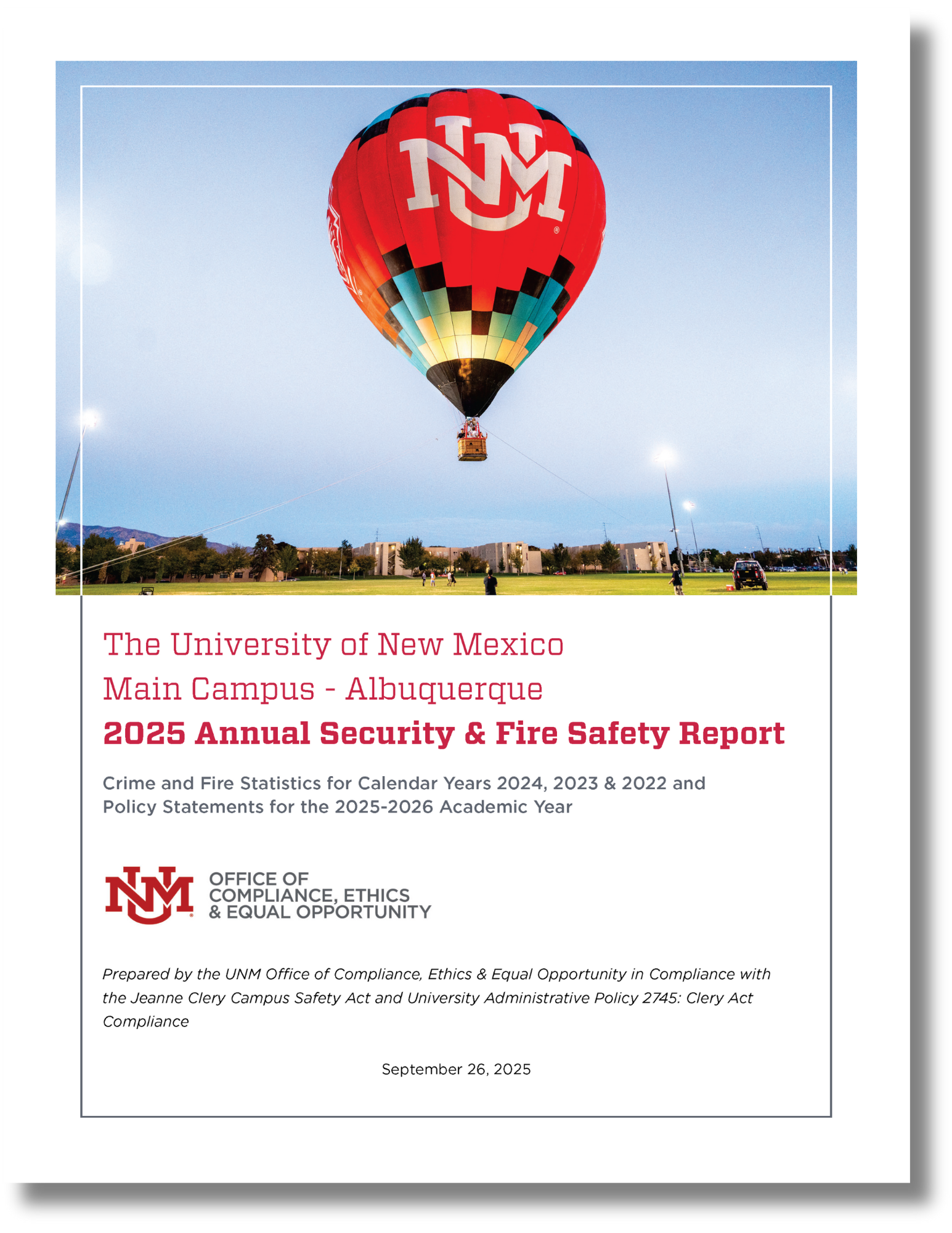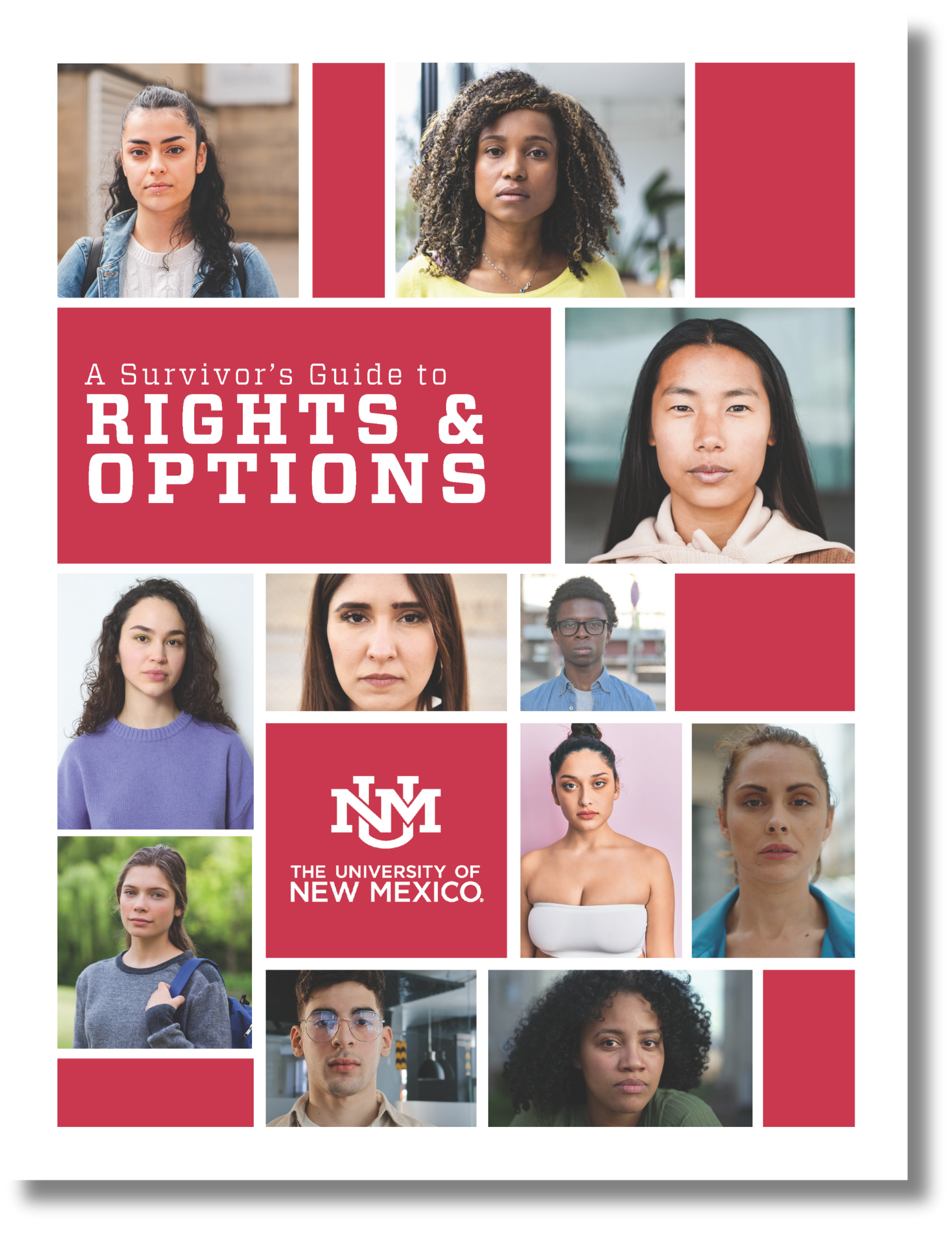Your safety and security are of prime concern at the University of New Mexico.
UNM is committed to offering services, information, resources and tools to offer a safe campus to all students, staff, faculty, and visitors. We also encourage individuals to contribute to campus safety and preparedness by becoming informed, staying alert and using good judgment.
Emergency preparedness on a University campus can present many challenges. A campus environment includes not only an extremely large geographical area, but a continuously changing population. Emergency planning must protect people as well as the institution’s operations such as research, athletic and entertainment events, food services, housing and transportation. Contribute to our campus safety and preparedness by becoming informed, staying alert and using good judgment. Take advantage of the features on this site to help protect you and ensure the safety of the UNM community.
Who to Call
UNM has numerous systems in place to keep you safe, and who to call depends on your type of emergency and your location. Are you in a dorm or at the College of Nursing? La Po or Hodgin Hall? The best numbers to get the fastest response may be different. The Who to Call initiative kickstarted in 2024 takes on a One University approach by providing a comprehensive list of the best phone numbers to call for the specific building you are in, whether someone needs help with a- Medical emergency
- Crime in progress or a past criminal incident
- Fire in progress or a past fire incident
- Security incident in patient care space
- Facility maintenance issue
- Lockout or safety escort
The Who to Call phone list is available below and on the UNM Police Department homepage.
Alerts
There are currently no alerts.
Past Alerts
- Lobo Alert – 11.21.2025
Sat, 22 Nov 2025 02:45:00 GMT - Timely Warning - 11.21.2025
Fri, 21 Nov 2025 22:45:00 GMT
Advisories
There are currently no advisories.
Past Advisories
- Lobo Alert – 11.21.2025
Sat, 22 Nov 2025 02:45:00 GMT - Timely Warning - 11.21.2025
Fri, 21 Nov 2025 22:45:00 GMT
Tests
Upcoming Tests
Siren Test at 11:02am on Sept. 3rd
The Campus Safety Council and Safe Campus Living Task Force
The Campus Safety Council, created by President Stokes, was a multidisciplinary team that analyzed campus safety needs and made comprehensive recommendations. The CSC united all the safety initiatives on campus, centralized discussions surrounding aspects of the broad topic of campus safety, and advised President Stokes and other university leadership on the strategic direction of UNM's efforts, particularly related to the built environment.
The CSC had sub-committees to address specific campus needs:
- The Campus Security Task Force
- Community Policing
- Training and Prevention
- Policy and Procedure
- Safety Steering Committee
- SMART
- Communication and Awareness
- TAT/CARE
- Areas of High Student Concentration
The Campus Safety Council has been replaced with a new group to focus on safe living environments called the Safe Campus Living Task Force.






